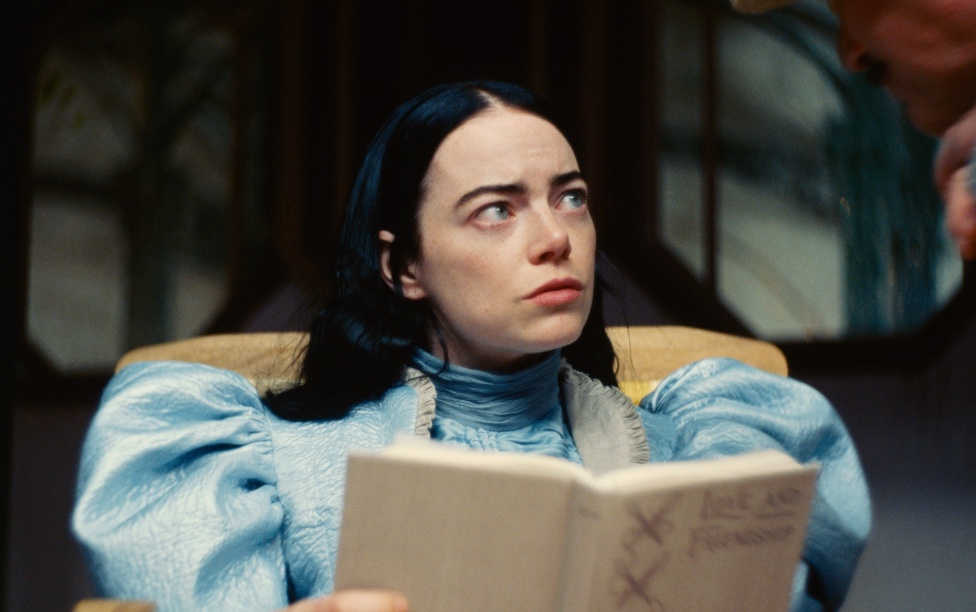Greek filmmaker Yorgos Lathimos is known for his absurd and surreal movies that explore some of the eerier aspects of human nature. His latest film “Poor Things” certainly fits that narrative as Victorian woman Bella Baxter (Emma Stone) is brought back to life by unorthodox scientist Dr. Godwin Baxter (Willem Dafoe) with the transplant of an infant’s brain. Bella, who knows nothing but the expectations put on her, runs away with the eccentric lawyer Duncan Wedderburn (Mark Ruffalo) on her journey of self-discovery, autonomy and sexual liberation.
“Poor Things” was nominated for 11 Oscars this year, taking home four of them: Best Production Design, Best Makeup and Hairstyling, Best Costume Design and Best Actress in Leading Role. With this impressive resume and seeing that Stone won over Lily Gladstone, I knew it must truly be a special film that I had to give a watch. I had high expectations going in, but “Poor Things” simply did not meet the mark for me.
The themes of sexual liberation and a woman’s agency with her desire are intriguing, however, I feel the movie falls flat in the delivery. I understand the narrative being presented, that we should not conform to the polite society and that women are not possessions to have, but considering the importance of the message, the execution lacks.
The film presents a shaky line between liberation and exploitation. Bella has the brain of a baby and multiple men take advantage of her, which is deeply disturbing. Additionally, Duncan is not as interested in Bella sexually after she gains knowledge and does not rely solely on him. Though this is to illustrate how men infantilize women, I think the portrayal of Duncan as a character is weird to say the least. He is shown as a goofy person to make a joke of rather than displaying him as the pedophile he is. The movie barely criticizes his perverse nature, which is off-putting. Actually, most if not all the characters are off-putting to me in some way, except for Bella.
Another aspect of “Poor Things” that I would criticize is how cliche it is. Maybe I have just seen too many movies, but I could predict every turn made, making this film a little boring. Most movies follow the hero’s journey, so it can be said that every movie is similar, but something about Bella ending up living in Godwin’s mansion is just a little too predictable. The characters are quite cliche too. I always love an evil scientist when done right, but Godwin is a tired formula. His stereotypical character adds nothing new or exciting to the trope, being just another godlike scientist that is disfigured for no reason and does not actually care about his subject.
I sat waiting for the film to surprise me or turn into the thing that everyone loved so much. I expected that at some point in the movie I would understand why everyone loved it and why Stone won Best Actress in Leading Role, but that point never came. At the end of the movie, I was just relieved it was over and that I could go play with my dog, who is actually entertaining and spontaneous.
Despite my criticisms, I enjoyed the premise of a female “Frankenstein” and thought the look of the movie was unique and original. I am always drawn to modern Victorian costumes, makeup and hairstyles, so the movie sold to me visually and deserved its Oscars in those respective categories. I love Stone and I certainly was not disappointed with her performance, but when going up against Gladstone and Sandra Huller’s performances this year, she just did not win it for me.
Overall, I just did not really “get” the movie. I understand the themes of sexual liberation and feminism, but I have seen other movies do it way better.
If my review has strayed you from watching “Poor Things,” a movie I love dealing with themes of sexual liberation and feminism is “Revenge” (2017) directed by Coralie Fargeat. The film is about a woman who is assaulted and murdered, and then comes back to life and gets revenge. It is one of my favorite “good for her” movies.









Jerry • Apr 24, 2024 at 4:52 pm
It’s not just about conveying the feminine themes, it’s about Bella’s journey from infant to adult. That’s what makes the film riveting and Stone’s performance award worthy. Hint: rewatch and notice how Bella refers to herself as she “grows up”.